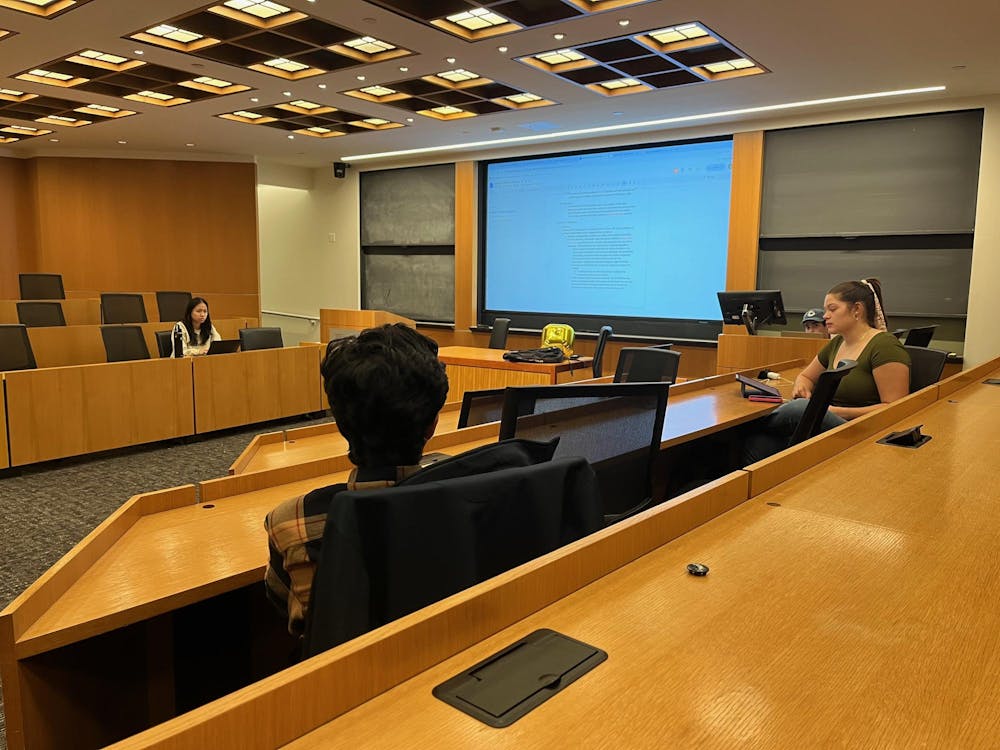At the Oct. 6 meeting of the Undergraduate Student Government (USG), members voted to change the Honor Code process in two key areas, resulting in the approval of three additional seats in the Honor Committee and an adoption of the new “suspension (not served)” section.
This vote will allow the Honor Committee to expand from 15 members to 18, with the intention of ensuring a timely hearing for students accused of violating the Honor Code. In the past, the Honor Committee received several new cases at the end of the Spring semester due to cheating allegations related to finals. According to members of the committee, this made it difficult to promptly adjudicate cases, as members had to coordinate online and across time zones during the summer. The Committee hopes that the increased number of members will make these predictable spikes in caseload more manageable.
“[The] timeline of when the violation occurred affects how quickly a case can be heard,” said Honor Committee Chair Caroline Schückel ’25, who fielded questions on the expansion during the meeting. “That’s not what should be a deciding factor … cases being heard more quickly, and having extra capacity is really important because the anxiety that must come with knowing you have a case, and not knowing when it's going to be heard … takes a pretty heavy toll on people.”
Schückel stressed the importance of this expansion to support the student body, along with the second change in the Honor Code that also passed a senate vote. The new Honor Code now includes a section on the suspension (not served) disciplinary sanction for a case adjudicated by the Honor Committee.
This motion to implement the suspension (not served) sanction was approved unanimously by all members of the Senate. A factor contributing to its adoption is the harshness of a suspension. The University does not allow students to graduate in the winter, which effectively forces students to take an entire year away.
Schückel previously told the ‘Prince’ that the sanction is intended to carry the weight of suspension without requiring the student to leave the University, and will move the Honor Committee in a “kinder” direction.
“It’s really different to have someone be, essentially, not at school for a year versus probation for a semester,” she said. “Having suspension (not served) allows for ... a middle ground option.”
Schückel also facilitated the approval of five new members to the Honor Committee, selected through an application emailed to students. The selections were unanimously approved by the Senate.

“These five stood out to us,” said Schückel. “We can teach people procedures, but we can’t teach people to be compassionate and to conduct themselves that way with students who are under investigation.”
The Senate will vote on an approval for the Undergraduate Student Life Committee’s budget request at a later date. The proposal includes funding for student roundtable discussions — first initiated in the Spring 2024 semester — as well as new projects that aim to bring together students and undergraduate student leaders. This request includes funding for wellness programming during finals week.
Devon Rudolph is a News contributor for the ‘Prince.’
Please send corrections to corrections[at]dailyprincetonian.com.









